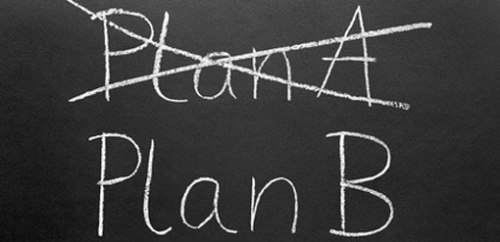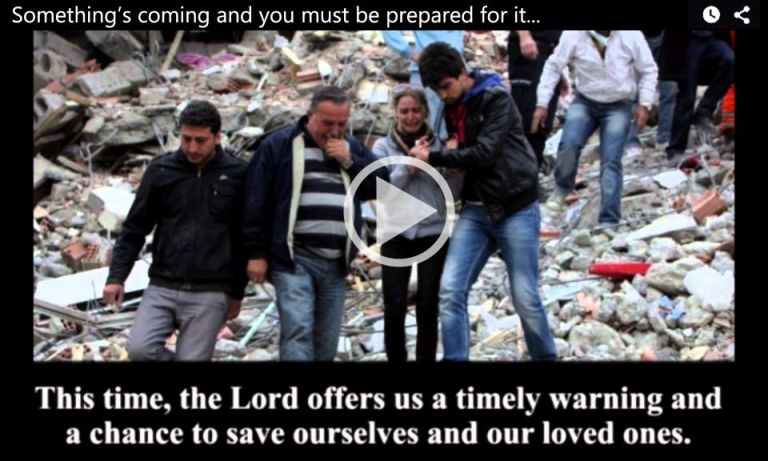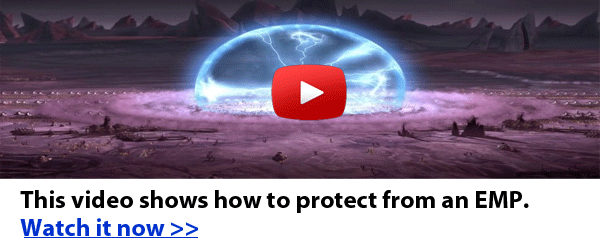
This article was written by Tom Chatham and originally published at Project Chesapeake.
Most people that take future disruptions to their lives as a given usually go to the next step and have a backup plan to deal with those disruptions. Some people set aside extra money to pay for unexpected breakdowns or appliance repair. Some set aside money to pay rent and utilities in the event of job loss or sickness. Some set aside supplies in the event of natural or man made disasters that cut off their normal supply systems. Some even prepare for world altering disasters that may only happen once in a millennium.
In any case people are taking responsibility for their own well being and doing what they think is reasonable diligence given the uncertain world we live in. Do you have a backup plan to deal with any disruptions in your normal daily life? If you do not, then why not? Now is a good time to sit down and contemplate some of the things that could alter your life but could be substantially minimized if you only take some preventive actions now.
Disasters that can prevent you from going about your daily routine for an extended period of time can be life altering. Especially if these disruptions prevent you from acquiring the basic necessities of life you have come to depend on. The inability to satisfy your needs can be depressing and even life threatening at some point. The following is just one of many ways you can reduce possible problems to mere inconveniences with just a little though and preparation. This list only lists food and energy in the solutions but can be expanded to include anything you might deem necessary. Just think of it as a starting point.
Plan A-
Normal operations in your daily life that encompass small manageable problems that everybody faces from time to time.
Mitigation options: Maintain 30 days worth of money to deal with unexpected financial problems.
How to gain complete energy independence>>
Plan B-
Temporary disruptions that disrupt your daily routine and can prevent you from doing certain tasks that need to be done. The disruption will limit your access to food, water and energy resources for up to two weeks. It can be a power outage, cyber attack, natural disaster or man made disaster.
Mitigation options: Generator with 20 gallons of fuel storage, battery pack with power inverter to reduce generator use, canned foods, water storage, cash on hand.
Plan C-
Long term disruptions that alter your daily routine and can prevent you from doing certain tasks. This disruption will eliminate all availability of food and energy resources for the duration of the emergency. The situation is much like a temporary disruption except it can last much longer putting the health and welfare of the population in serious risk.
Mitigation options: generator with at least 50 gallons of fuel, batteries with power inverter, solar and wind generation as backup, larger food stores or garden production, water filtration and storage, alternative fuel source ie: wood gas or biogas system, wood stove with wood supply.
Plan D-
This could be a long term disruption that falls outside of normal circumstances. It could be something like an EMP or CME that takes down the technological infrastructure. It can also encompass your response to a long term disaster that goes beyond the limits of your technological preparations in earlier plans.
Mitigation options: Oil lamps and lamp fuel, hand operated water pumps for wells, water filters, gas stove with bio gas fuel or wood stove with wood supply, absorption refrigeration with bio gas system.
This is merely an example of how you can break down potential problems and devise solutions to the type of situation. It also allows you to jump ahead to the proper plan given the known problem allowing you to react in a timely fashion. The faster you can respond to the problem the better you will be able to limit the negative effects on you.
In many disasters it is all too familiar to see people running around in a daze not knowing what to do. It is these people that present the greatest threat to keeping society stable when things seem to fall apart quickly. The more that you can reduce disasters to mere inconveniences the better off you and your community will be. Having a plan and resources standing by when that happens is instrumental to maintaining order and allowing some type of recovery to begin.
Granted, living in a rural area on a few acres of land will give you many options that an apartment dweller will not have so it is important to do a realistic appraisal of your situation and determine the best course of action in the event of a disaster. Your plan needs to be tailored to you and no one else. This is why you must give considerable thought to it and not just try to copy the plan of others. While others may have very good ideas to incorporate into your plan your plan must work for you when the time comes.
A plan does not have to be complicated or expensive, it just needs to work. When it comes to disasters the greatest asset you have is your own mind. Expanding your knowledge base and just taking the time to think through different situations will greatly increase your response to situations that might send your neighbors over the edge. When disaster strikes, how you are able to respond will determine how well you get through it so give yourself every opportunity to stay safe and healthy.
RELATED: 12 Life Saving Security Insights For Doomsday Preppers
Self-sufficiency and Preparedness solutions recommended for you:
Survival MD (Knowledge to survive any medical crisis situation)
Survival System (Learn The 7 Secrets Every Family Must Know To Survive Any Disaster Or Crisis)
BulletProof Home (A Prepper’s Guide in Safeguarding a Home)
Backyard Liberty (Obama’s hidden agenda: more than just your guns…)



